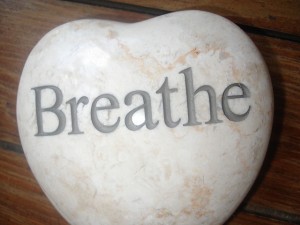Why are we so failure-aversive? The need to have control is part of the problem, according to Paul Iske, founder of The Institute of Brilliant Failures. We need to let go of this and realize there are some essential reasons things don’t always work out like we expect them to:
the problem, according to Paul Iske, founder of The Institute of Brilliant Failures. We need to let go of this and realize there are some essential reasons things don’t always work out like we expect them to:
- We live and work in a complex environment.
- We overlook side effects. [They can be the answer you’re actually looking for!]
- We don’t know long-term consequences.
- The world can change.
- We don’t understand all interdependencies of the situation.
Trying to exert enough control so you don’t make a mistake can be crazy-making, especially considering the dynamics listed above. So, I have four suggestions:
1. Ask yourself, “What’s the worst thing that can happen if I fail?”
I was listening to our local NPR station the other day when author Tim Harford was being interviewed about his book Adapt: Why Success Always Starts With Failure. Host Dave Iverson and Harford were discussing how important it is to learn from failures. A very brave man called in and said he had been a nurse for over 30 years and he remembered that one time, early in his career, he had made a mistake with medication. “Uh-oh,” I thought, “That’s got to be the worst thing that can happen to a nurse.” The caller said his supervisor asked him to tell the other nurses about his error and, when he progressed in his career and mentored other nurses, to tell them as well. His supervisor wanted the mistake to become a learning point for not only him, but for others as well. Rather than seeing this as shameful, the man said it was a great lesson for him that others can benefit when we share our failures.
So, even if “the worst thing that can happen” may be dire, you and others may gather extremely useful information from the failure. And, it’s likely that “the worst thing that can happen” won’t be that dire and answering your own question about this will give you a better, more realistic perspective about the situation.
2. Consider the dynamics and let go of control.
Look at the bullet points above again. There are man y, many things that can affect the outcome of our behaviors and efforts. Although you do need some control to function effectively in life, trying to micromanage things that are out of your control will definitely increase your stress level. Take a breath . . . step away from the control button.
y, many things that can affect the outcome of our behaviors and efforts. Although you do need some control to function effectively in life, trying to micromanage things that are out of your control will definitely increase your stress level. Take a breath . . . step away from the control button.
3. Don’t forget the side effects.
I think this is one of Iske’s most relevant points. Try not to get so focused on the exact parameters of success in your situation that you overlook other positive aspects that may arise even if you fail at your goal. Remember, Christopher Columbus “failed” at finding a passage to the Far East, but he discovered a whole new continent in the midst of his failure.
4. Realize you’re in good company.
Failing and making mistakes is part of being human. Some of our greatest heroes experienced hundreds of failures before succeeding. Doug Toft commented on my last post and gave us a great website that shows many examples of this. It’s pretty inspiring to realize the company that we’re in as flawed human beings. If these people became who they are because of their failures, sign me up to fail!
Brilliant.
Takeaway points: Trying to control for every eventuality so you don’t make a mistake will drive you crazy. Get a different perspective by realizing that failures are a part of the human condition and may even be necessary for us to learn and succeed. Side effects of failures can lead us to places of success we didn’t even know were possible.
What are your thoughts on failure?

 challenge of your greatest fear. Did you know that many, many people fear public speaking more than death itself? If you’re one of those folks, here are some ideas that will help you become more comfortable whether you’re giving a speech in front of hundreds or are called on at a management meeting.
challenge of your greatest fear. Did you know that many, many people fear public speaking more than death itself? If you’re one of those folks, here are some ideas that will help you become more comfortable whether you’re giving a speech in front of hundreds or are called on at a management meeting. Takeaway points: If you can breathe, remember that your audience is on your side, realize that lighting doesn’t strike if you make a mistake, and add some humor to your talk, you’re well on your way to bouncing back from your fear of public speaking!
Takeaway points: If you can breathe, remember that your audience is on your side, realize that lighting doesn’t strike if you make a mistake, and add some humor to your talk, you’re well on your way to bouncing back from your fear of public speaking! articulated so beautifully how she felt like such a stranger in a strange land in her life in San Francisco. I very distinctly remember her asking, “Where is my tribe?” I suspect a lot of people turn to addictions out of lack of connection to a tribe.
articulated so beautifully how she felt like such a stranger in a strange land in her life in San Francisco. I very distinctly remember her asking, “Where is my tribe?” I suspect a lot of people turn to addictions out of lack of connection to a tribe.
